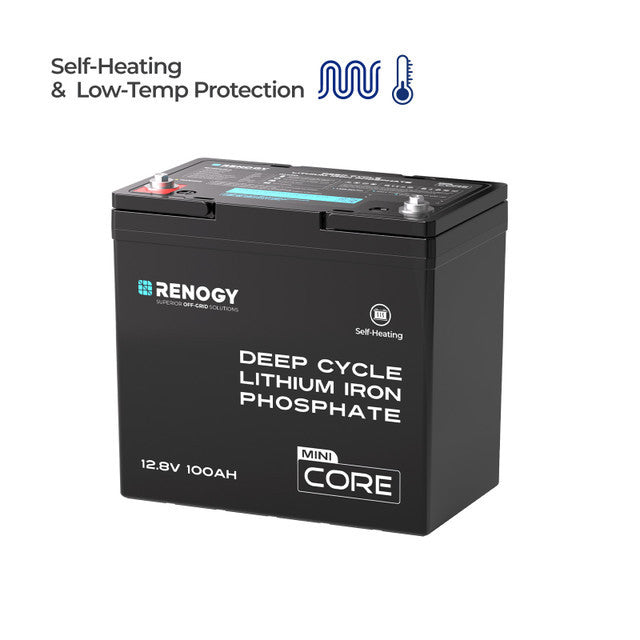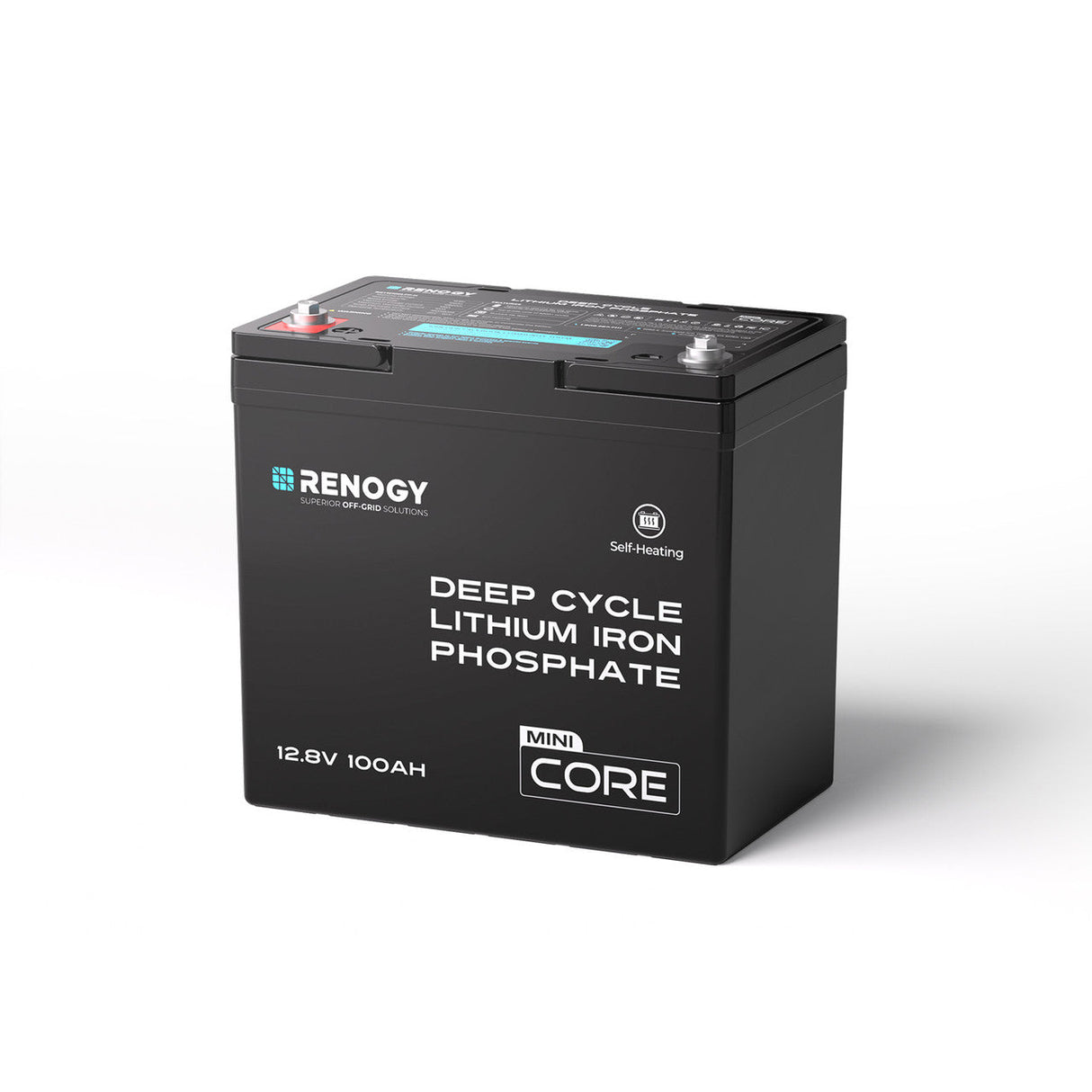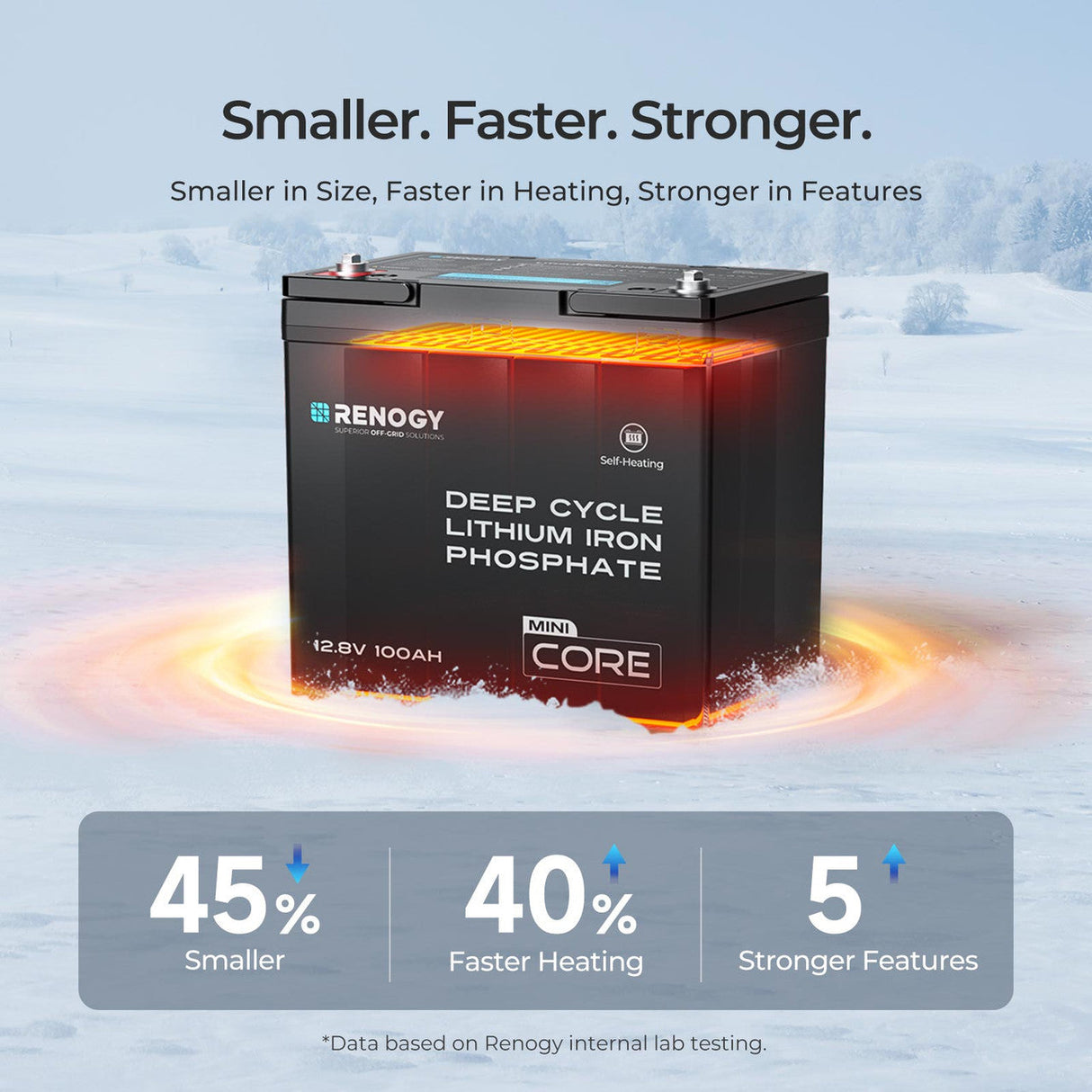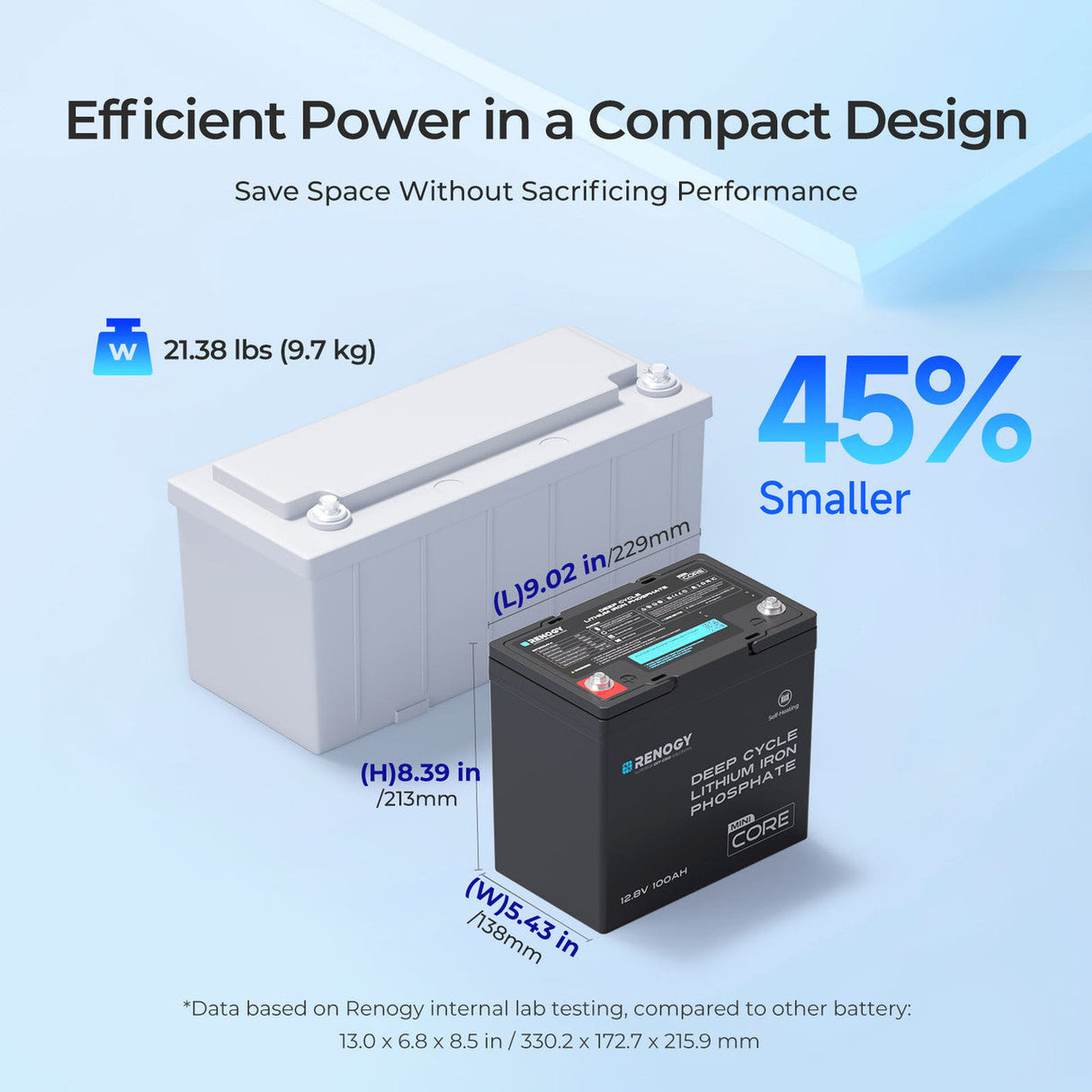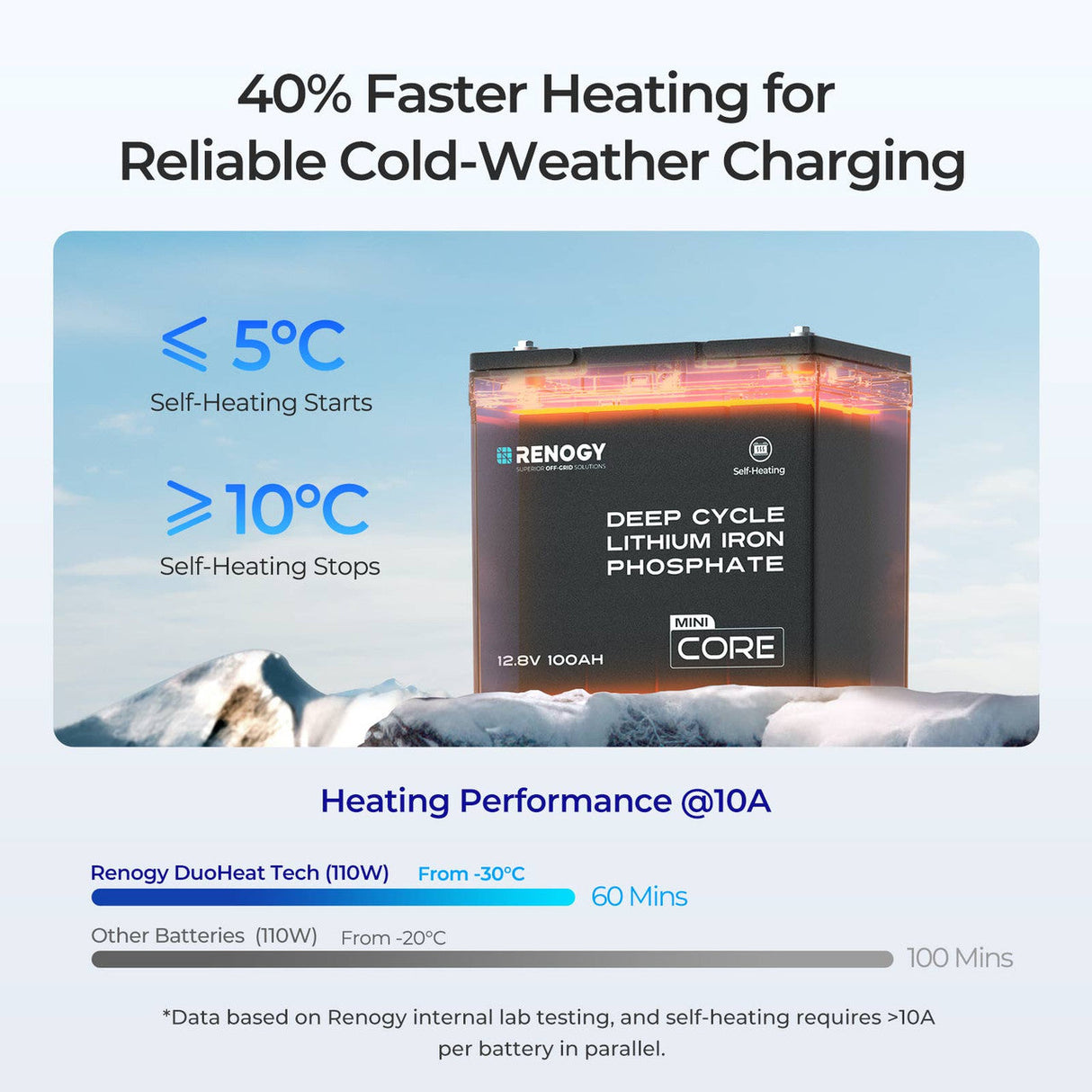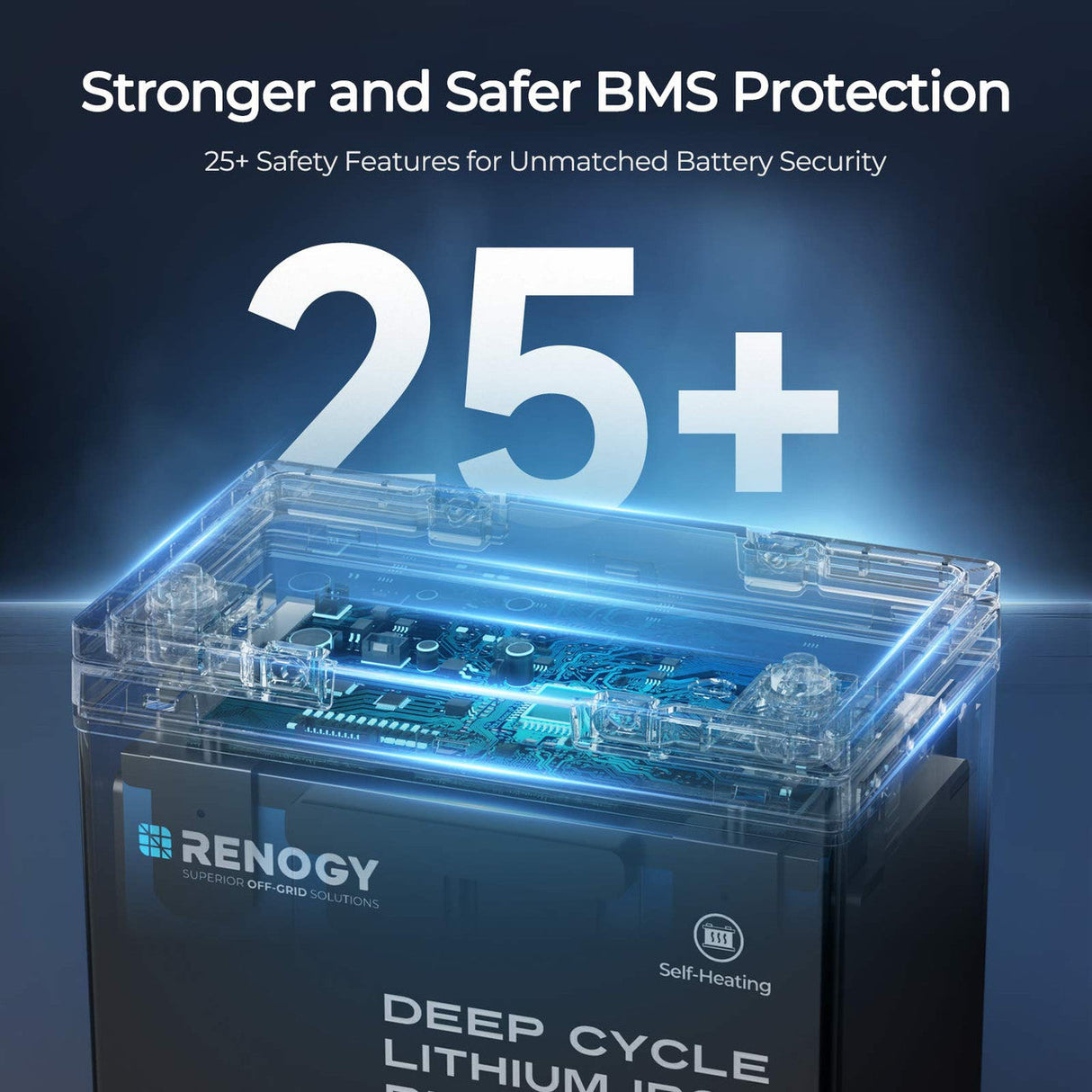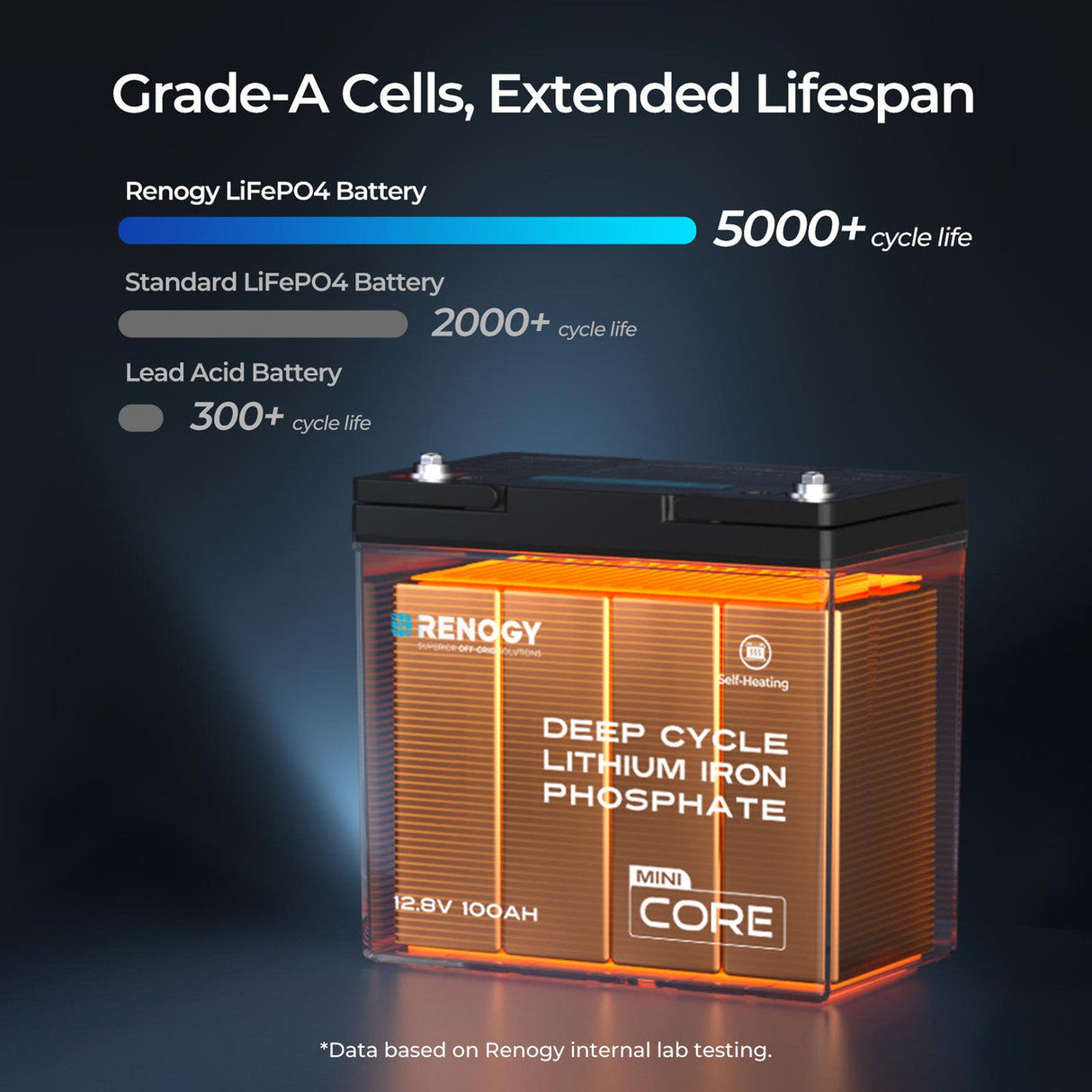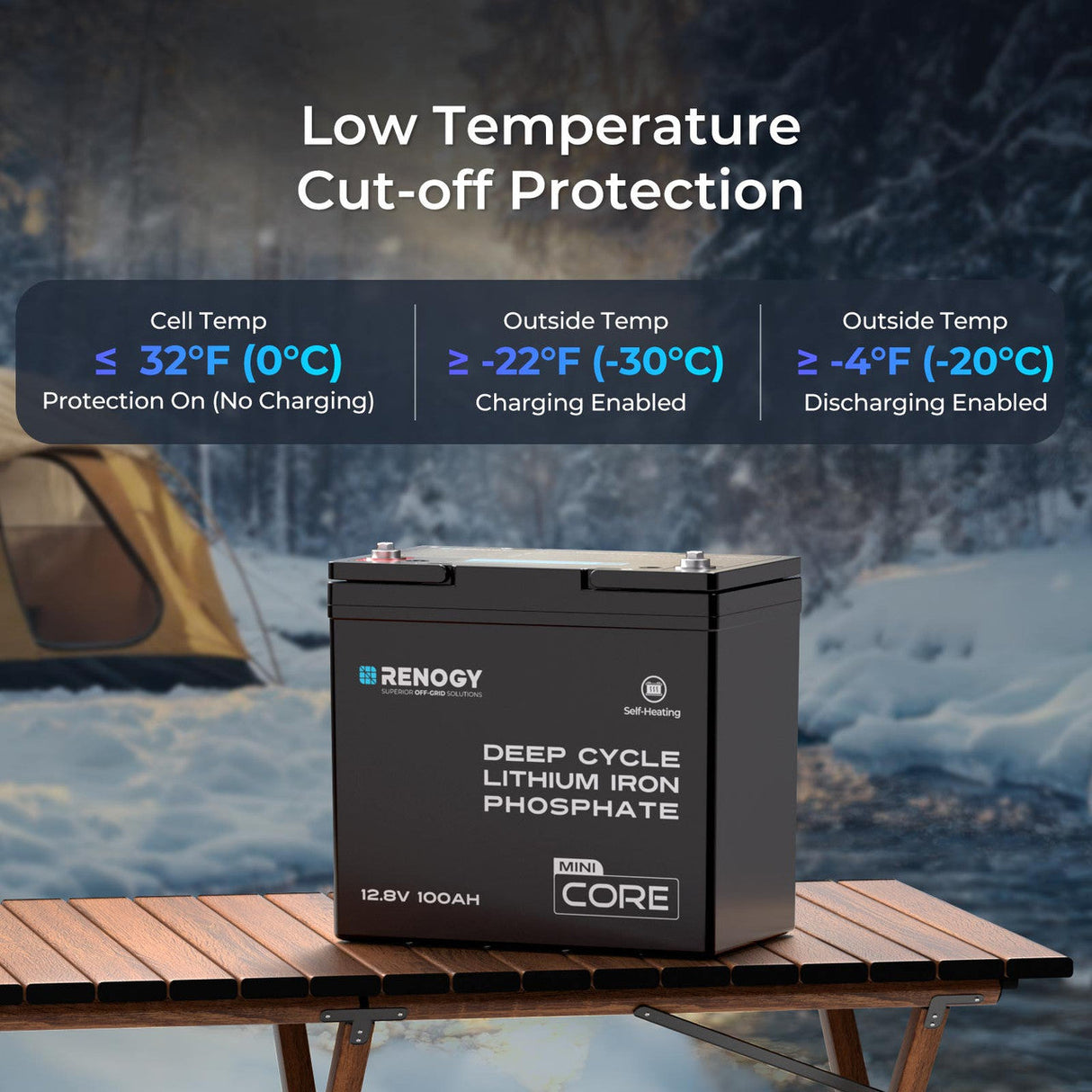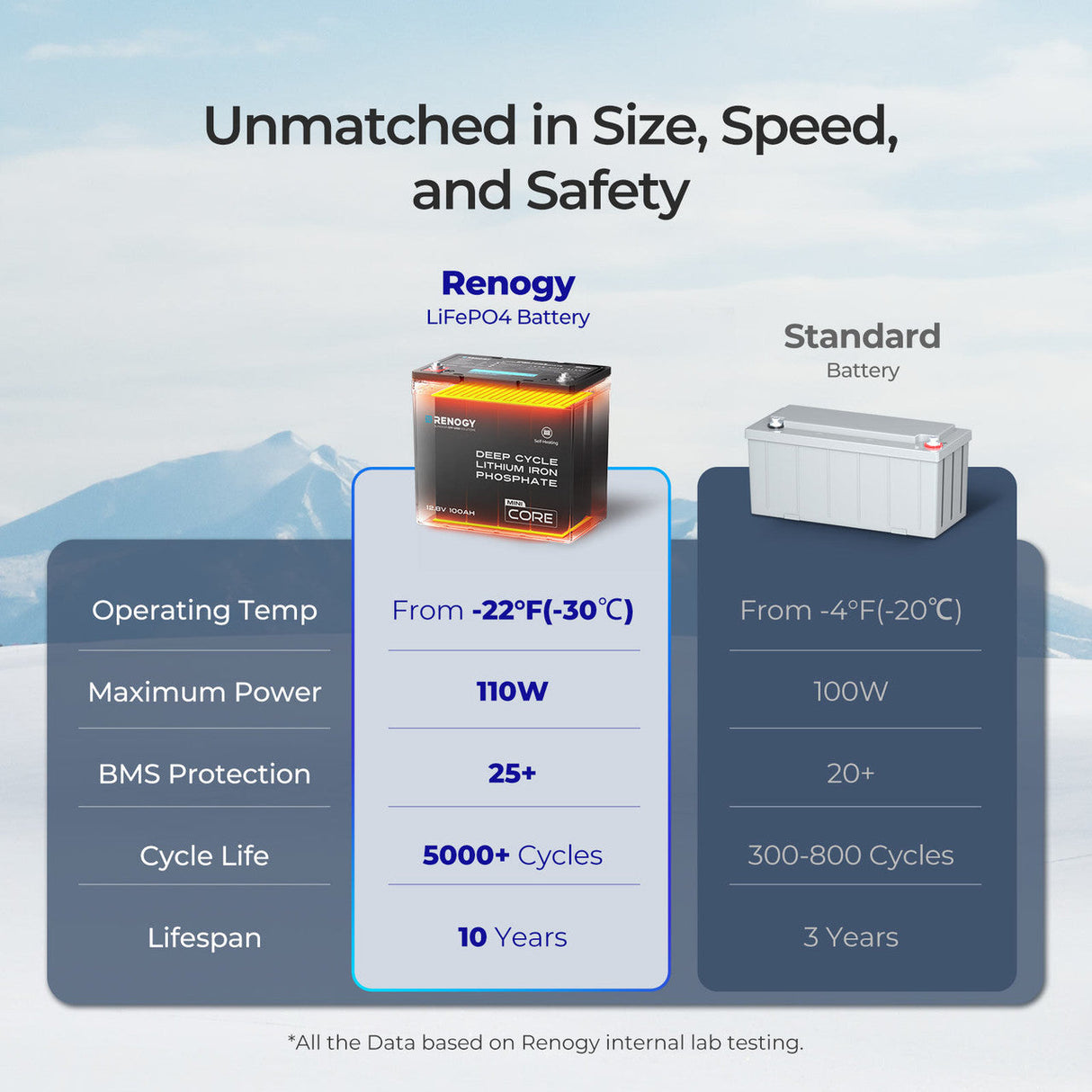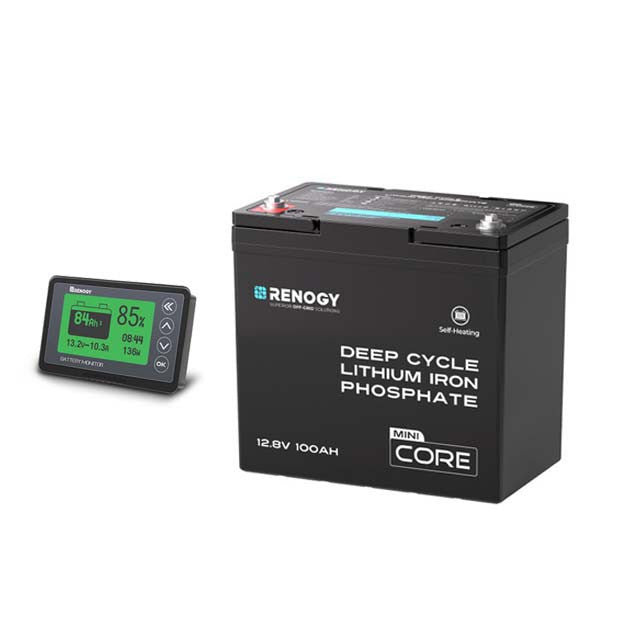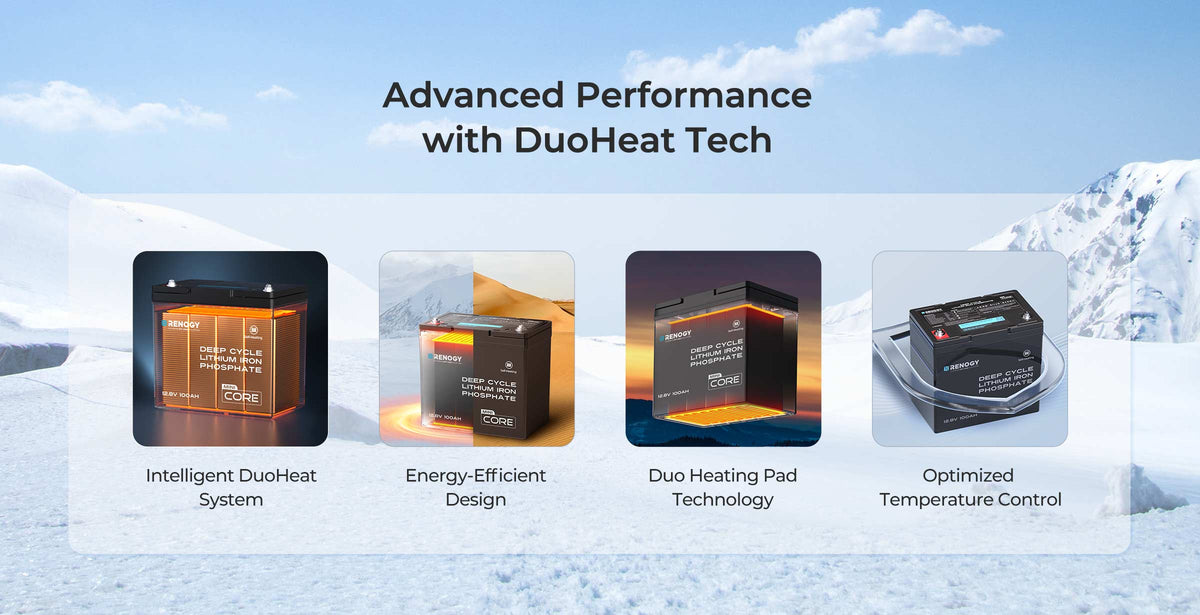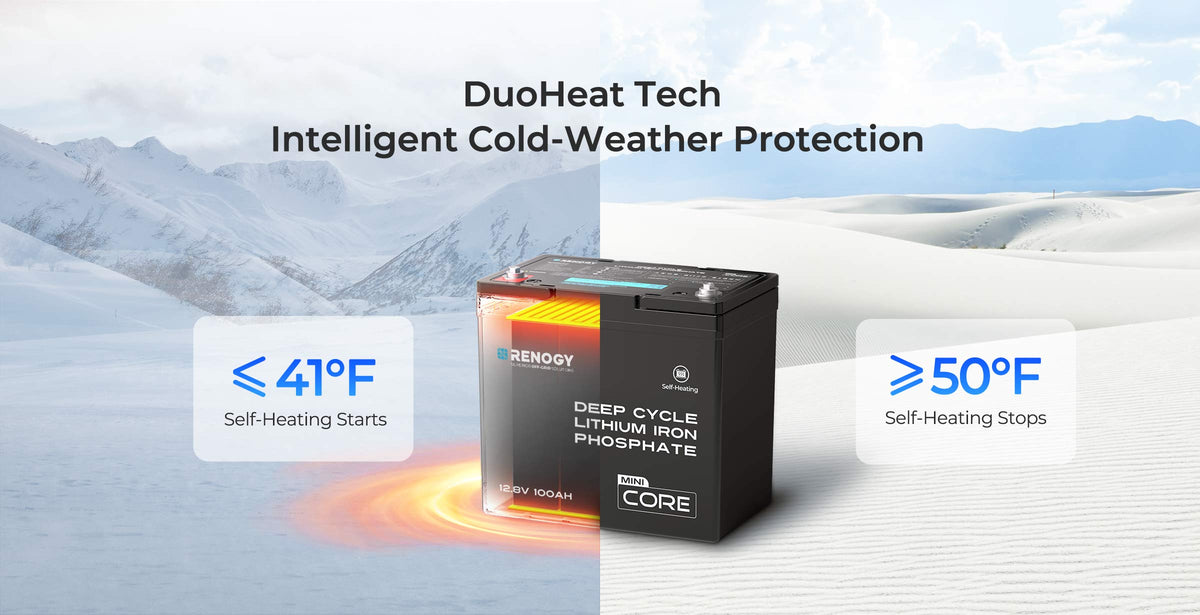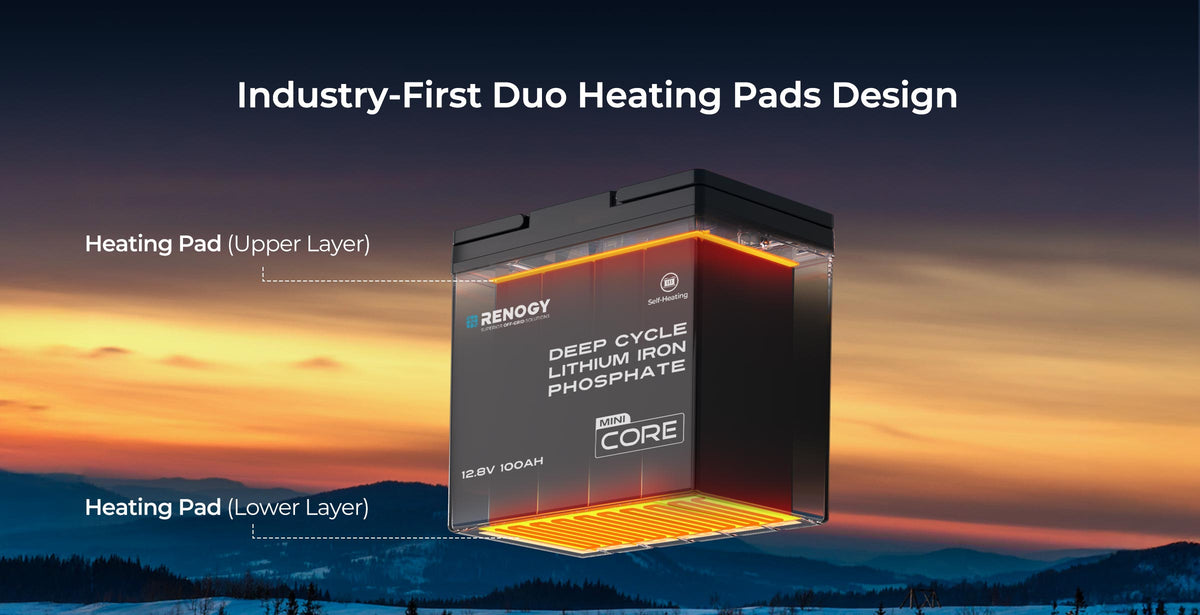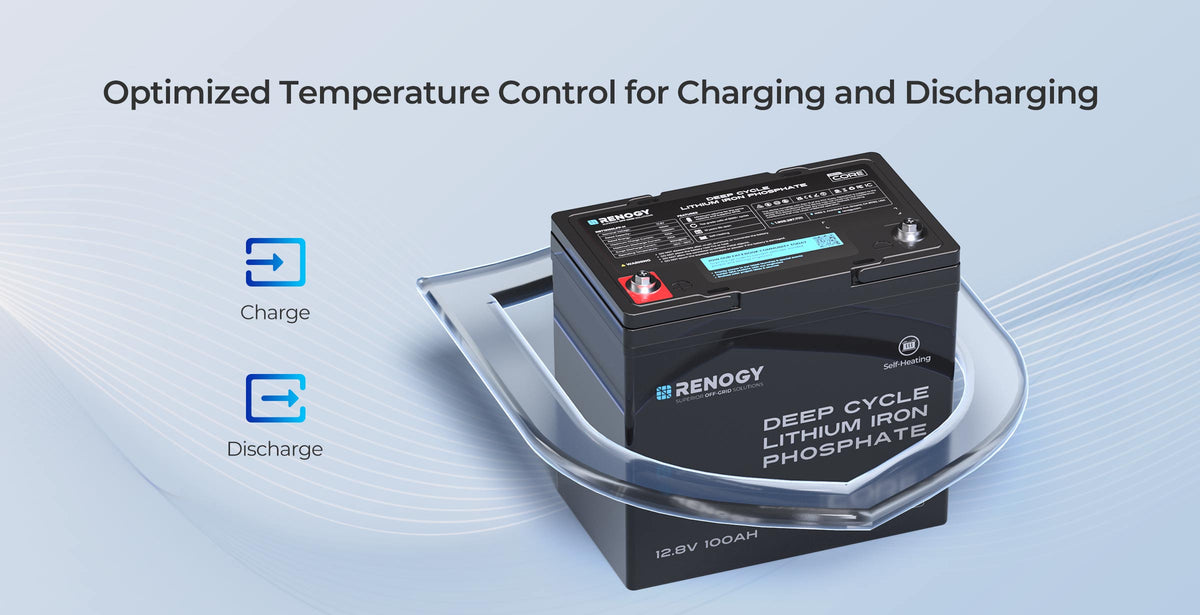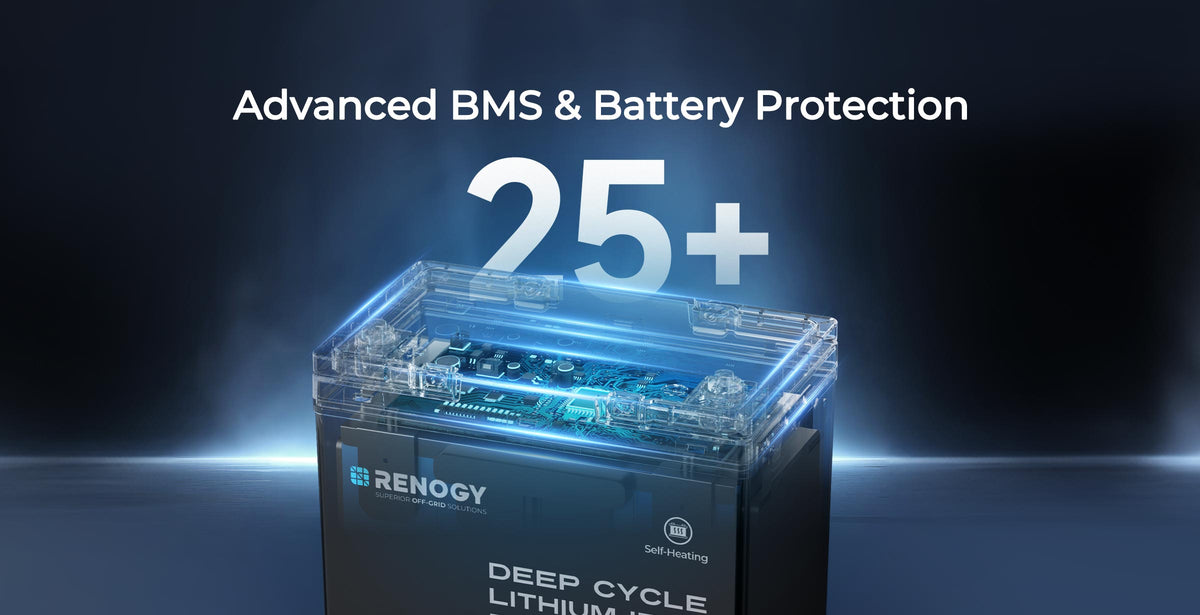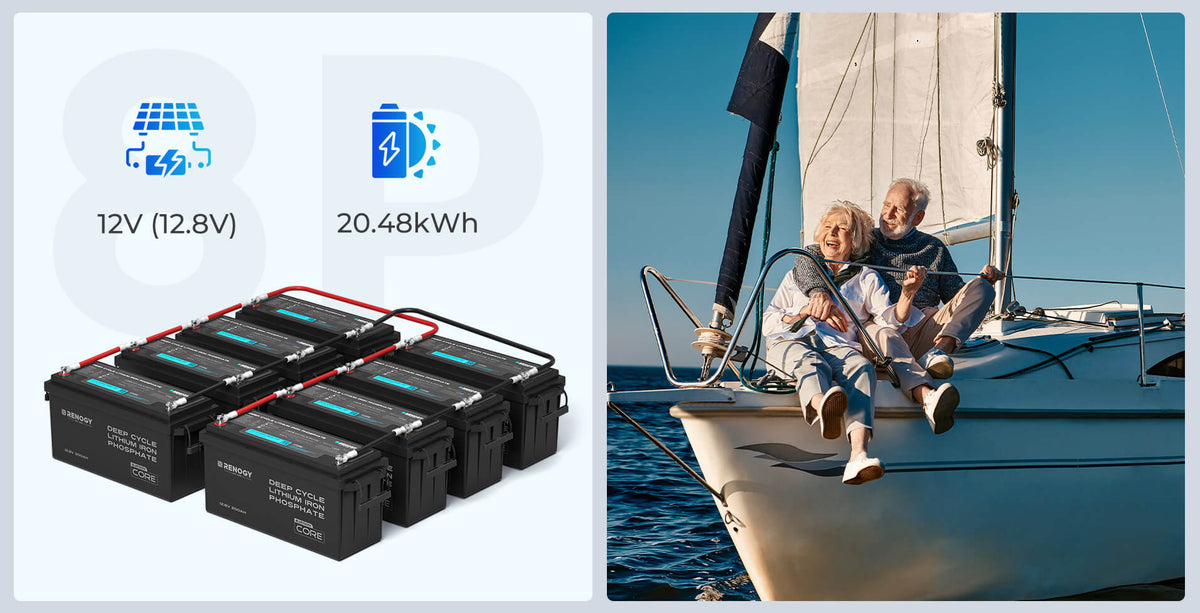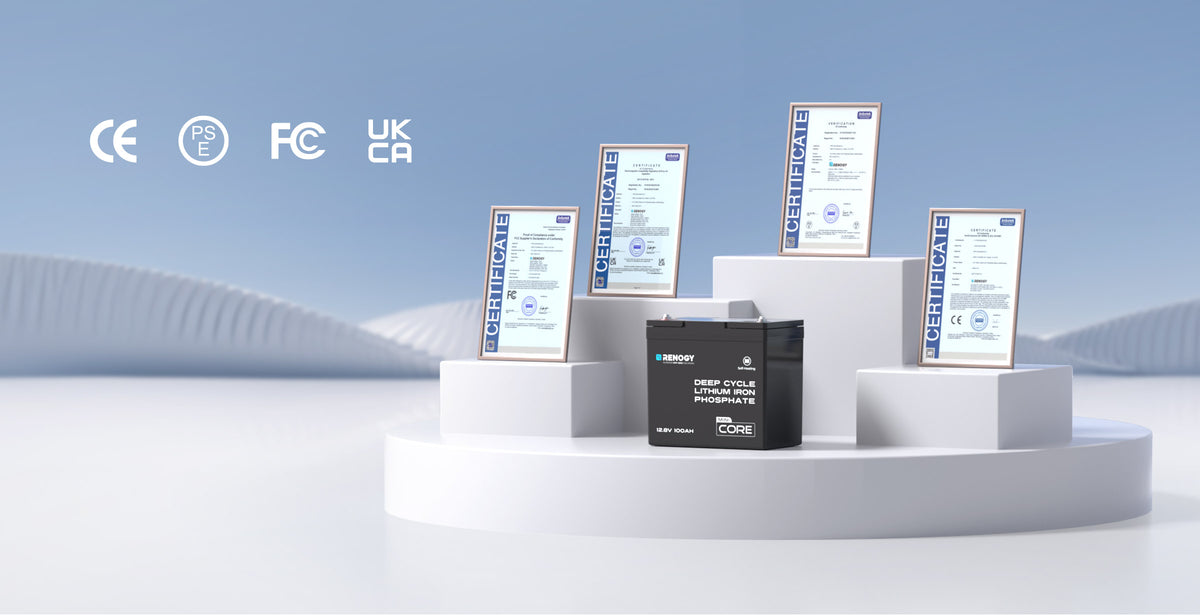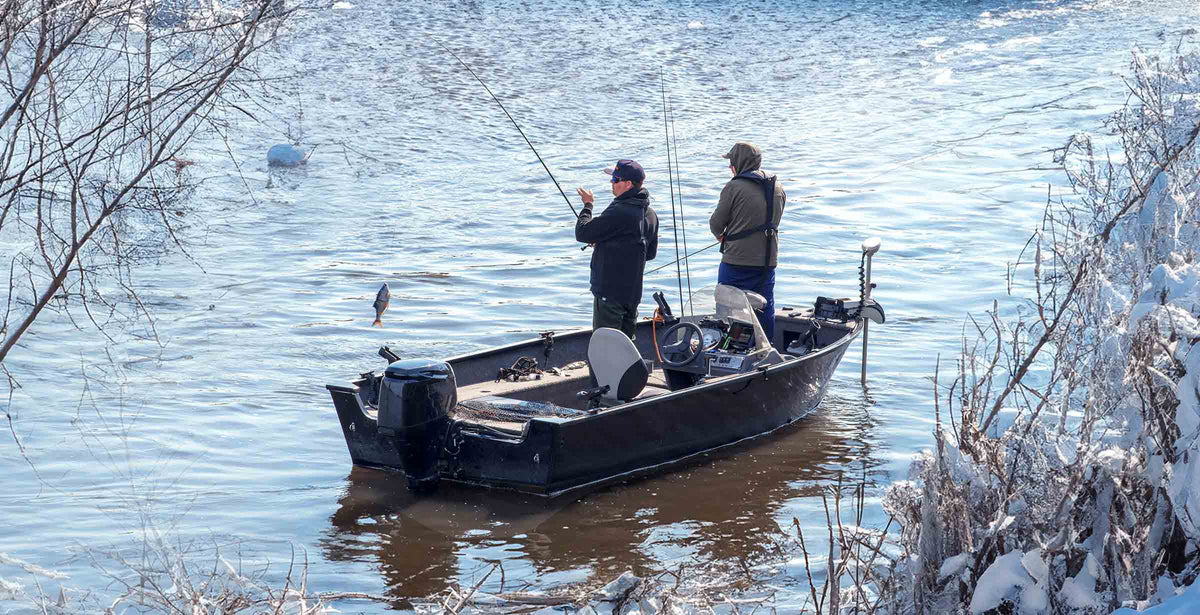Core Mini DuoHeat — 12.8V 100Ah LiFePO₄ Battery
- Format Group 22NF : 45 % plus compacte que des batteries similaires, pour un gain de place significatif.
- Double chauffage intégré : 110 W de puissance pour chauffer 40 % plus rapidement et assurer une performance optimale même par temps froid.
- Plus de 25 fonctions de sécurité et gestion intelligente avec un BMS 100A pour une opération fiable et sécurisée.
- Cellules LiFePO4 de qualité Grade A : plus de 5000 cycles à 80 % de profondeur de décharge (DOD) pour une longévité exceptionnelle.
- Garantie 5 ans avec certifications internationales : FCC, CE, RoHS, et bien d’autres.
- onctionne de -30 °C à 55 °C grâce à son boîtier IP65 résistant aux intempéries.
Core Mini DuoHeat — 12.8V 100Ah LiFePO₄ Battery - 1 Pack is backordered and will ship as soon as it is back in stock.
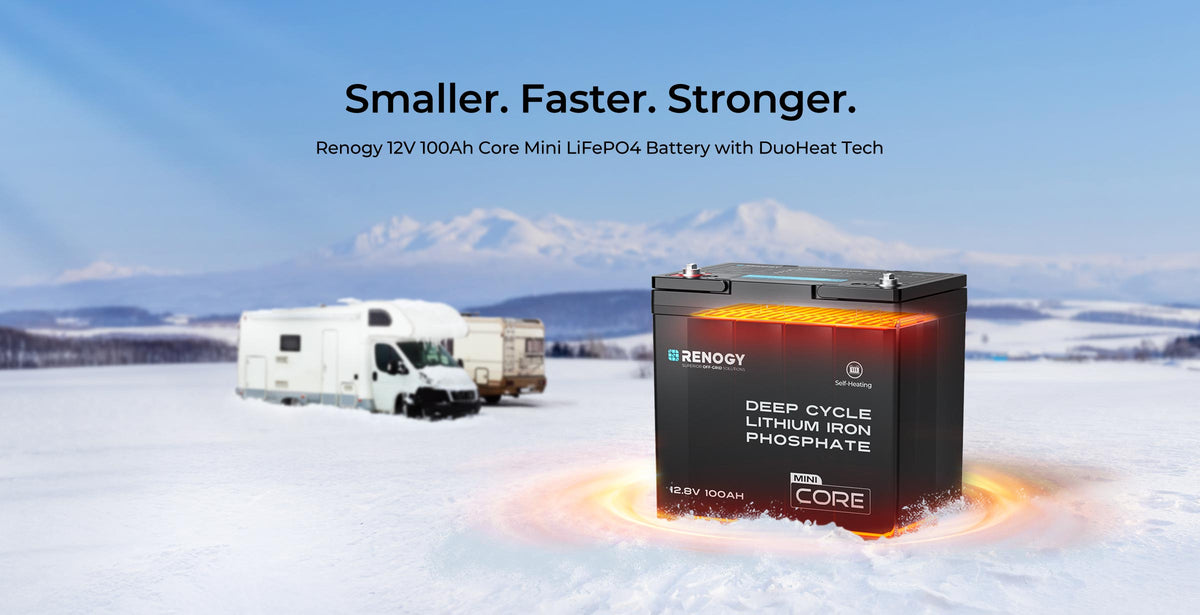
Top Reasons to Love the Renogy 12V 100Ah LiFePO4 Battery
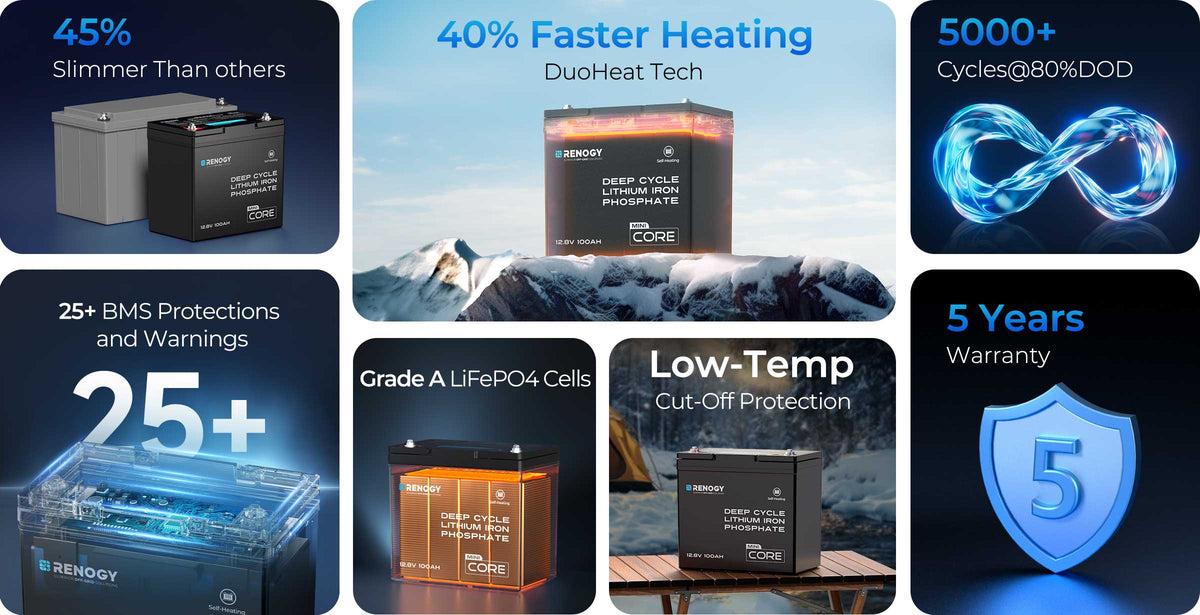
Tame the Cold, Fuel Your Adventure
The Core Series 12V 100Ah LiFePO4 battery with DuoHeat Tech delivers 110W of double-power heating—twice as efficient as conventional models. Heat up 40% faster and support 13% increased thermal tolerance, transitioning to ready-to-charge from -30°C (-22°F) in just 60 minutes. Don't let the cold put a stop to your plans.
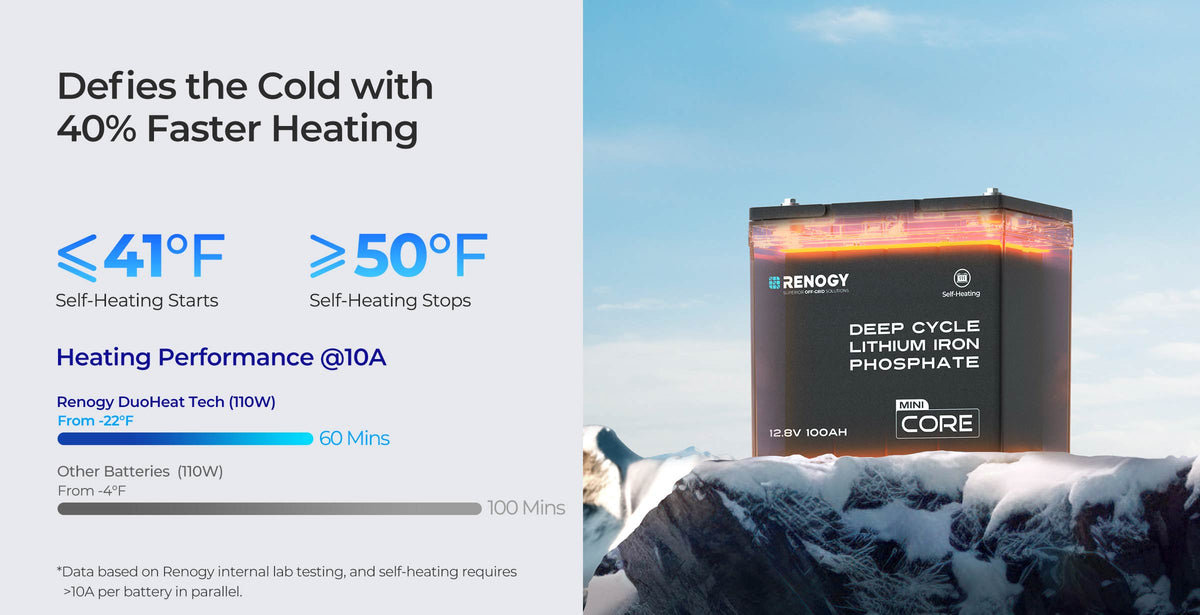
Maximum Power in a Compact Size
Enjoy exceptional performance in a 45% smaller package. The Core Series 12V 100Ah LiFePO4 battery weighs 11% less than standard batteries, freeing up space for your adventures while delivering maximum power.
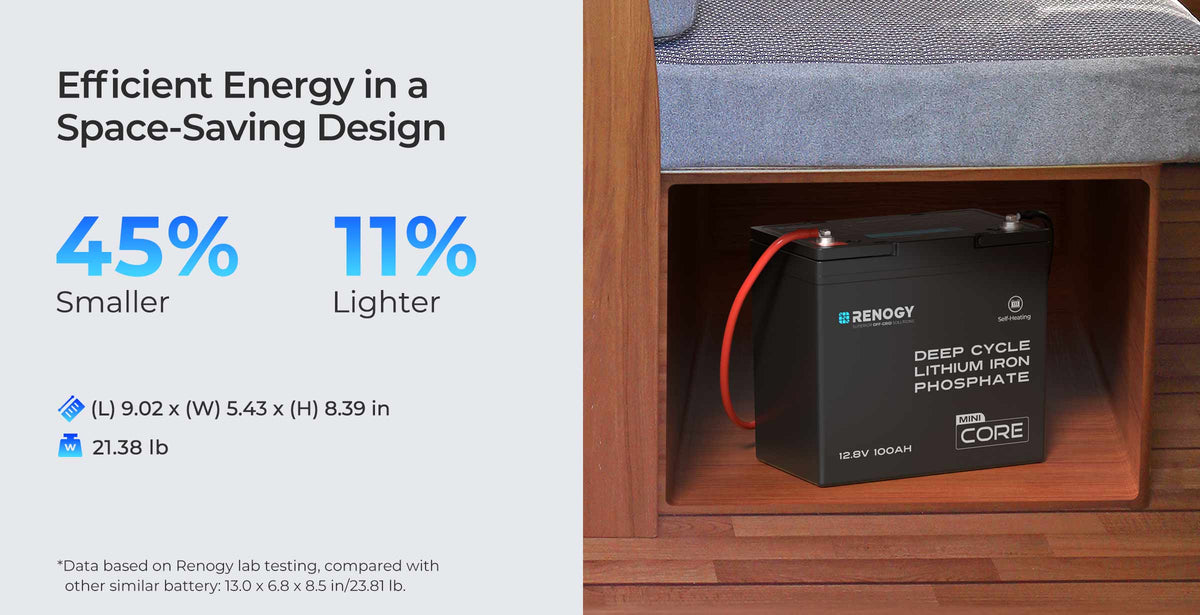
Up to 20.48 kWh of scalable energy
Connect up to four batteries in series or parallel for a solution tailored to your specific needs. Installation flexibility ensures you have the power you need for all your adventures.
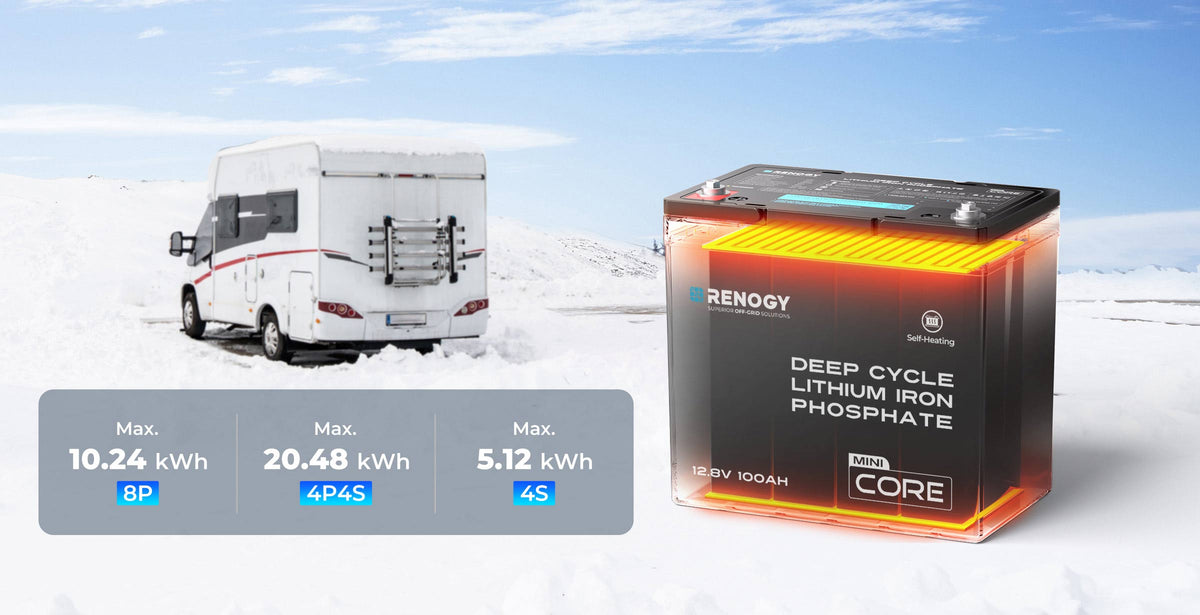
Package Contents
-
Renogy Core Mini 12V 100Ah LiFePO4 Battery with DuoHeat Technology
x 1
-
Terminal bolts M8 × 1.25 × 12 mm
x 2
-
Insulating sleeves
x 2
-
User Manual
x 1
Général
Paramètres de fonctionnement
Garantie
Téléchargements
Frequently Asked Questions
When do you need a self-heating battery?
When do you need a self-heating battery?
While standard lithium batteries stop charging at 0°C, the Renogy Core Mini with DuoHeat technology operates down to -30°C. This gives you uninterrupted power during winter storms, cold snaps, and icy conditions—when you need it most.
When can the 12V 100Ah self-heating battery stop working?
When can the 12V 100Ah self-heating battery stop working?
Battery performance depends on two main factors: outside temperature and battery cell temperature.
-
operates at temperatures as low as -30°C (-22°F).
-
operates at temperatures down to -20°C (-4°F).
However, if the cell temperature drops below 0°C (32°F), the battery protection system stops charging. To resolve this issue, let the built-in Duo Heating Pad warm the battery or move it to a warmer location. Once the cell temperature reaches 0°C (32°F), charging will automatically resume.
What is the difference between outside temperature and cell temperature?
What is the difference between outside temperature and cell temperature?
Outside temperature: This is the air temperature around the battery, for example -10°C (14°F) outside.
Cell temperature: This is the internal temperature of the battery. It changes more slowly than the external temperature.
For example, if you bring a cold battery inside, it will take some time for the cell temperature to rise. It is the cell temperature that determines whether the battery can function or not.
How does self-heating work in extreme weather?
How does self-heating work in extreme weather?
With DuoHeat technology, our advanced dual heating plate system provides 110W of intelligent heat regulation. Here's how it works:
-
When the cell temperature drops to 5°C (41°F), the heating plates automatically activate to warm the cells.
-
When the cell temperature reaches 10°C (50°F), the plates deactivate.
This allows the battery to charge safely while heating up when the temperature is between 0°C and 5°C (32°F and 41°F). Above 0°C (32°F), it charges normally.
What should I do if my battery is not charging because of the cold protection?
What should I do if my battery is not charging because of the cold protection?
To safely resolve this issue, follow these steps carefully:
1. Inspect the battery:
Check the battery for any signs of visible damage, corrosion, or loose terminals.
Make sure it is safe to handle and that there is no swelling or leakage.
2. Heat naturally:
Move the battery to a warmer location (above 0°C / 32°F).
Let it warm up gradually over 1 to 2 hours.
Do not attempt to charge or use the battery during this warming period, as this may damage the battery or create unsafe conditions.
3. Check the connections:
Always wear safety glasses when handling the battery.
Use insulated tools to check the terminals and ensure they are secure.
If you observe corrosion, gently clean it with a soft, dry cloth. Avoid using metal objects to scrape the terminals.
4. Connect the charger:
Connect the charger to the battery terminals, observing the polarity (+/-).
Check that all connections are secure and avoid touching exposed metal parts.
Carefully monitor the charging process to ensure proper and safe operation.
5. Post-charge check:
Once the charger indicates the battery is fully charged, disconnect it and let the battery rest for 30 minutes.
Check the battery voltage to confirm that it is within the normal operating range.
6. Test with a small load:
Connect a low-power device, such as a small lamp, to check that the battery is working properly.
Gradually test more powerful devices while continuously monitoring battery temperature to ensure safe operation.
How to Properly Use Renogy LiFePO4 Batteries in Cold Weather
How to Properly Use Renogy LiFePO4 Batteries in Cold Weather
To get the most out of your battery in winter conditions, follow these recommendations:
1. Maintain safe temperatures
Charging range: -30°C to 55°C (-22°F to 131°F). Self-heating function activates below 5°C (41°F).
Discharge range: -20°C to 60°C (-4°F to 140°F).
If the ambient temperature drops below -20°C (-4°F), the battery may not discharge properly. Avoid extremely low temperatures if possible.
2. Use the self-heating function correctly
Ensure a charging current of at least 10 A per battery to activate the function.
The function automatically turns on below 5°C (41°F) and turns off at 10°C (50°F).
For optimal performance, avoid installing the battery in environments where the temperature remains consistently below -20°C (-4°F).
3. Avoid high-power discharges
In cold weather near the discharge limit (-20°C / -4°F), avoid connecting high-power devices. This prevents the activation of protection mode and protects the battery.
4. Store the battery safely
Storage Range: 0°C to 35°C (32°F to 95°F). Avoid prolonged exposure to extreme cold, as even with low temperature protection, prolonged exposure may degrade performance.
For long-term storage, keep the battery charged to 30-50% and recharge it every 3-6 months to maintain its health.
5. Inspect regularly
Check for any physical damage and ensure the connection ports are clean and free of corrosion.
In very cold weather, regularly monitor the battery voltage and condition to ensure optimal operation.
What safety features protect my battery?
What safety features protect my battery?
The advanced Battery Management System (BMS) provides comprehensive protection through intelligent monitoring and control. With over 25 safety features covering temperature, current, voltage, and circuit protection, the system automatically guards against common hazards and extreme conditions. This professional-grade protection ensures reliable performance while ensuring the safety of your system.
Main protections:
Charging and discharging safety
Temperature regulation
Balancing cells
Polarity reversal prevention
Each feature works in perfect coordination, ensuring your battery operates safely in all conditions.
How long does it last compared to traditional batteries?
How long does it last compared to traditional batteries?
The Renogy Core Mini offers exceptional longevity with over 5,000 cycles at 80% depth of discharge (DOD)—up to 15 times longer than conventional lead-acid batteries, which typically last between 300 and 800 cycles. This longer lifespan ensures years of reliable service, while reducing replacement and maintenance costs. With professional-grade LiFePO4 cells, you get more power, longer life, and a better return on your investment.
Is this battery compatible with my solar installation?
Is this battery compatible with my solar installation?
The Renogy Core Mini 12V 100Ah battery integrates seamlessly with most standard solar systems. While it works with conventional charge controllers and inverters, using LiFePO4-compatible chargers ensures optimal performance and maximum longevity. Our technical support team, along with our comprehensive installation guides, helps you easily unlock the full potential of your system.
Does the battery support Bluetooth or other tracking features?
Does the battery support Bluetooth or other tracking features?
The Renogy 12V 100Ah LiFePO4 battery does not have built-in Bluetooth monitoring, but it is compatible with Renogy external monitoring devices. These devices allow you to track battery status, current consumption, and overall system health in real time, providing a complete view of your electrical system.

